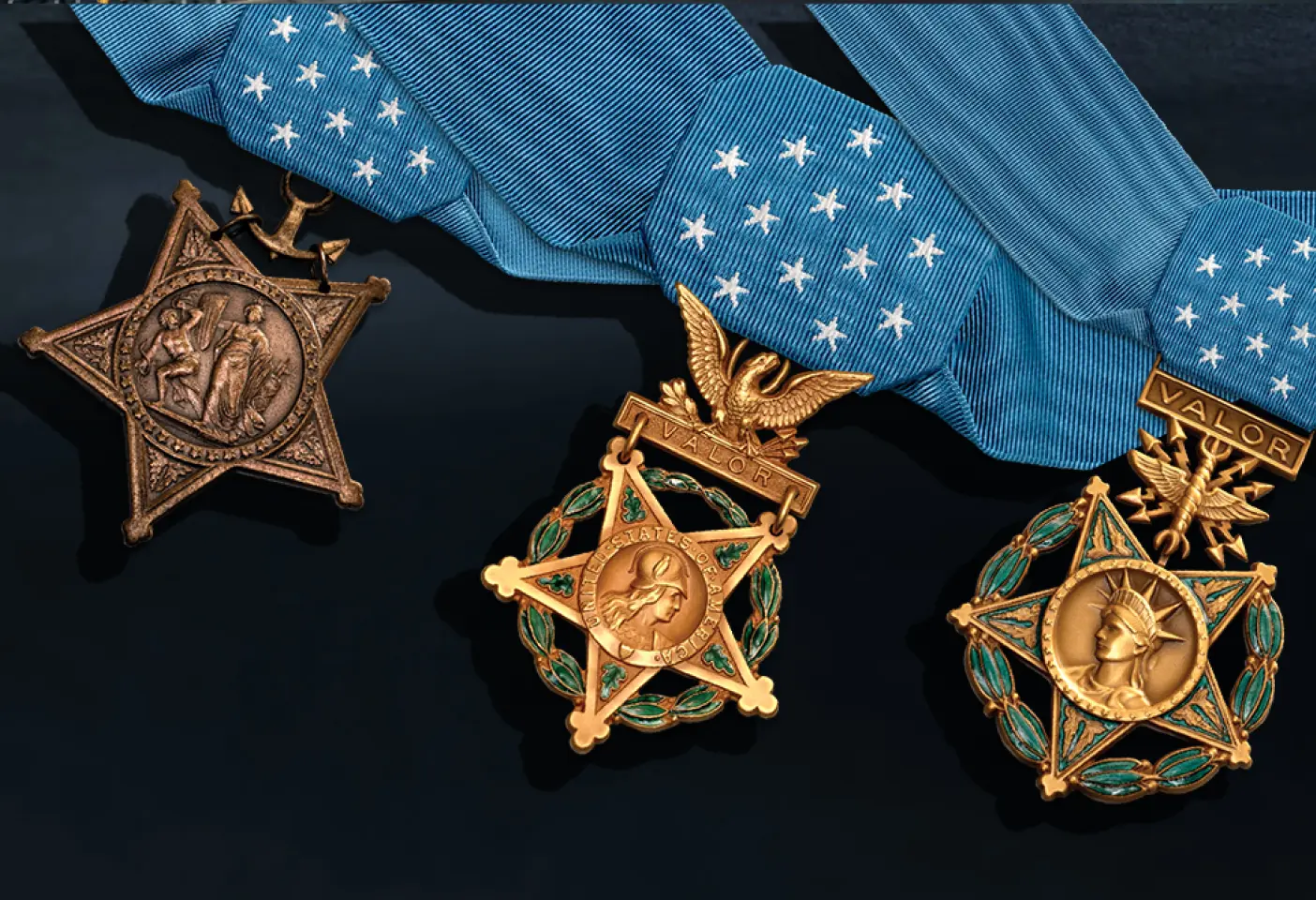ORDINARY AMERICANS
EXTRAORDINARY ACTIONS

These are true stories. This is the Medal of Honor. A celebration of the human spirit, the National Medal of Honor Museum honors the inspiring lives and legacies of ordinary Americans who took extraordinary action in the service of others.
MORE ABOUT OUR MISSIONEvery person is born with the potential to beExtraordinary

The Recipients
Over 40 million Americans have served in the US Armed Forces since the Civil War. Fewer than 4,000 have received the Medal of Honor. Before they were national heroes, they were neighbors, newlyweds, parents, students, and friends. What made them go above and beyond the call of duty?
View All Recipients



Watch Our Grand Opening Ceremony from March 22, 2025!
Experience the unforgettable Grand Opening of the National Medal of Honor Museum’s Mission to Inspire Spectacular, which took place on March 22, 2025. This remarkable 360-degree storytelling event featured fireworks, drones, video displays, and live performances, including the U.S. Navy Commodores Band. Together, we honored the valor, courage, and sacrifice of Medal of Honor Recipients and the 40 million Americans who have served in the United States Armed Forces. View here

INSPIRING AMERICA
THE VALUES BEHIND THE VALOR
The Medal of Honor is a symbol of courage & sacrifice, commitment & integrity, citizenship & patriotism.

MOMENTS OF ACTION
Explore virtual Medal of Honor battlefields and meet inspiring Recipients—in vivid high-definition.
VIEW EXHIBIT DETAILS

A medal steeped in history
Uncover the inspiring legacy, symbolism, and selection criteria of the Medal of Honor.
Explore the medal



